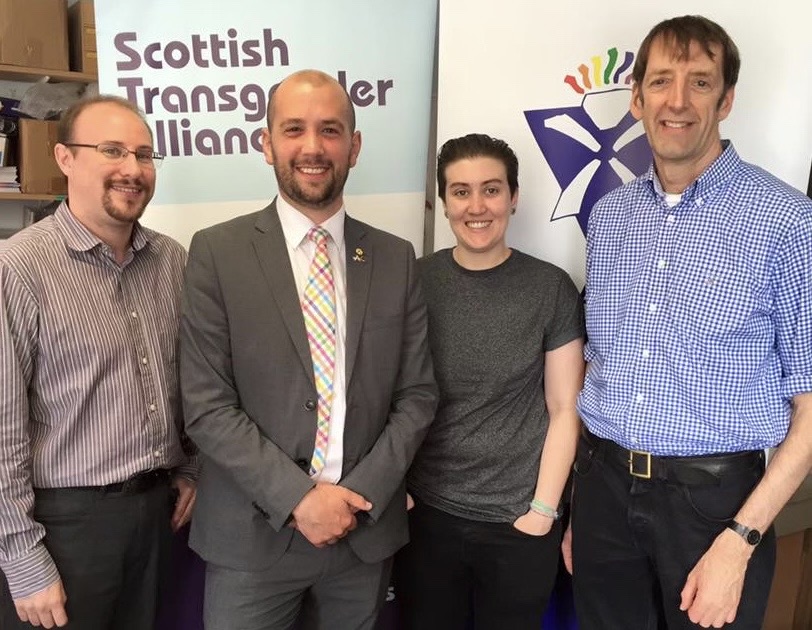On 22 December I voted for the Gender Recognition Reform (Scotland) Bill. I did so for three main reasons: 1) social justice is one of the key reasons I got involved in politics and I believe that this Bill proposes to make Scotland fairer for trans people; 2) I was elected on a manifesto that committed to reform; and, 3) the vast majority of constituents who contacted me about the Bill were supportive of it.
Trans people are some of the most stigmatised and vulnerable in our society, and many trans people find the current system for obtaining a Gender Recognition Certificate (GRC) intrusive, invasive, overly complex and demeaning. I have heard this directly from trans constituents. The current process has been in place since 2004.
The Bill that the Scottish Parliament passed proposes to alter the following requirements under the Gender Recognition Act 2004:
- Remove the requirement for a medical diagnosis and evidence to obtain a GRC.
- Reduce the minimum age of applicants for a GRC from 18 to 16.
- Reduce the current 2 year ‘lived period’ in an acquired gender requirement to 3 months (6 months for 16 and 17 year olds).
- Mean that 16 and 17 year old applicants will need to confirm to the Registrar General that they have had a conversation with an adult that they know personally, or with a person with a role providing advice, support, or information to young people, about the consequences of getting a GRC.
- Remove the need for applications to be determined by the Gender Recognition Panel, and allow applicants to apply via the Registrar General of Scotland.
- To reiterate, the above changes alter an existing process in law under the 2004 Act. The improvements set out in the GRR Bill follow examples of international best practice from countries that have implemented similar legislation. A close example would be of Ireland – the Irish Parliament passed their equivalent legislation in 2015.
Over the course of recent years and months, I have listened carefully to constituents who have concerns about the proposed reforms, mostly regarding women’s rights. I respect that these concerns mostly come from a sense of care, and relate to worries whether the proposed new GRC process could be vulnerable to being exploited by predatory men. In order to seek to provide reassurance on this, I think it is important to clarify a number of points:
- The Bill also seeks to introduce a number of safeguards, in addition to the serious legal step of requiring a person to make a statutory declaration before they apply for a GRC.
- Under the Bill individuals would be barred by a court from applying for a GRC, as a condition of a sexual offence prevention order, sexual harm prevention order, or sexual risk order.
- The Bill would not give trans men and women in Scotland any new rights, or affect the rights of anyone else, but it simplifies the existing process by which trans men and women can obtain a gender recognition certificate (GRC) to update the sex on their birth certificate. This is important as birth certificates are sometimes needed as forms of ID for things like determining right to work and marriage notices, but they are not used to access single sex spaces.
- Trans people with or without a GRC can already be excluded from single sex spaces if this is a proportionate means to meet a legitimate aim. This is covered by the Equality Act 2010. This would not be changed by the Bill.
- Where the Registrar General believed that an application has been made fraudulently, or that the person who has made the application lacks the capacity to do so, they can apply to the sheriff court to challenge the application, and not grant the GRC if the court agrees with the challenge.
- The Bill would create a criminal offence of making a false statutory declaration, or otherwise falsifying an application, in order to obtain a GRC.
Scotland is a leader in advancing equality and this Bill would contribute towards improving the lives of many trans people in our local communities and across Scotland.
On 16 January 2023 the UK Government took the unprecedented step of using section 35 of the Scotland Act to impede the Bill from progressing to Royal Assent. Like many others in Scotland, I have several concerns about this.




